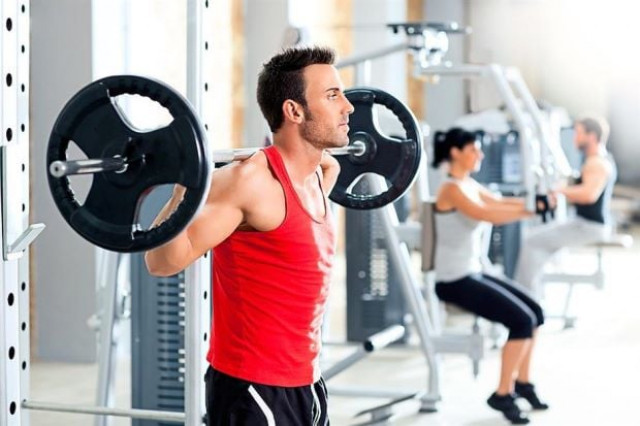6 rules for post-workout meals
If you think breakfast is the most important meal of the day, you’re wrong!

PHOTO: AFP
But how do we make that happen? As compiled by voxii.com, Men’s Fitness and Health magazine, follow these rules to maximise your gains.
1. Eat within 30 to 60 minutes post exercise

After a particularly tough workout, eating a “recovery” meal as soon as possible is essential for muscle healing. Exercise puts stress on your muscles, joints and bones. Your body utilises all the nutrients so post-exercise foods are all about replacing what you’ve lost and providing the raw materials and replenishments needed for muscle and body repair. It’s actually the recovery from exercise that in fact allows you to see results in terms of building strength, endurance and lean muscle tissue. Inadequate recovery can leave you weaker as you go into your next workout and increases your risk of injury.
2. Decrease meat portions

Are you an absolute carnivore? If so, this may be one of the reasons you aren't getting the results that you want from your workout. If you are attempting to work out right after a big meal that’s laden down with beef, chicken or other meats, you could actually be slowing down your metabolism, meaning food takes longer to digest. Same thing applies to devouring a steak post workout. This whole process of complex digestion zaps your energy and takes away the body’s focus on rebuilding muscle tissue.
Don’t ditch your meat entrées all together, just watch your portion size and save this type of meal for at least two hours after your workout.
3. Think beyond protein

Protein is no doubt a building block of muscle so it's inclusion is essential in your post-exercise meal. But an ideal recovery meal should include good fats to restore muscles and joints. Your body also needs plenty of nutrient-rich produce and healthy sources of starch such as brown rice, beans and sweet potatoes. These foods refill nutrients that have been depleted and provide energy to fuel your post-exercise metabolism. A great post-workout meal might include a bit of fruit like half a banana, a handful of almonds and greens for super antioxidant power. Oats or an omelette made with one whole egg and three whites, paired with veggies, avocado and chickpeas would be chock-full of muscle-replenishing nutrients.
4. Don’t overcompensate

If losing weight is one of your goals it’s vital to not overestimate how much extra food you “earned” working out. It’s unbelievably easy to “eat back” all of what you've burned. Even if you don’t splurge on treats like doughnuts and gaajar ka halwa, you may be tempted to sneak a little extra butter on your toast or be less mindful of your oatmeal or fruit portions and even those “healthy” extras can add up quickly and cancel out your fitness goals. Note: if you’re going to be eating a meal within half an hour of finishing up a workout, you don’t also need a post-exercise bar or snack.
5. Rehydrate

If you sweat profusely at the gym or your workouts last longer than an hour, you probably need a drink with electrolytes rather than plain water. A beverage like coconut water naturally keeps you well hydrated while also providing electrolytes to replace those lost in your sweat, like sodium, which makes sweat salty; and potassium, which helps regulate heart rhythm, as well as energy to keep you going. If your workouts are less strenuous and shorter, plain water should probably suffice. The general rule of thumb is to drink at least two glasses of fluid two hours before exercise, another two 15 minutes prior, and a half-glass every 15 minutes during. Post workout, aim for two glasses of water (16 ounces) and monitor the colour of your urine—if you’re well hydrated it shouldn't be pale.
6. No coffee post workout

Don’t panic, if you’re a coffee addict you don’t have to give it up completely. You do, however, need to restrict it post your gym session. If you’re packing your coffee down with cream and sugar try to cut those out altogether but if you just can’t do that, get your coffee in before your workout, never after.
The reason being, when you are working out you are in a catabolic state or muscle breakdown mode and by adding coffee (with or without the add-ons) after your workout, you continue to go deeper in a state of muscle destruction, causing your muscles to degenerate instead repairing the broken tissue.



















COMMENTS
Comments are moderated and generally will be posted if they are on-topic and not abusive.
For more information, please see our Comments FAQ